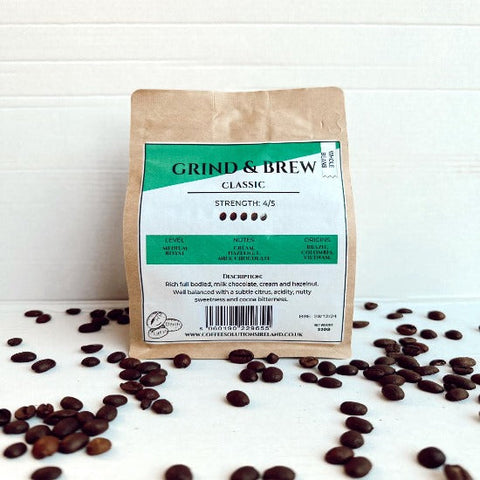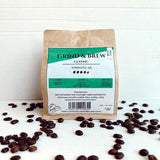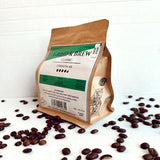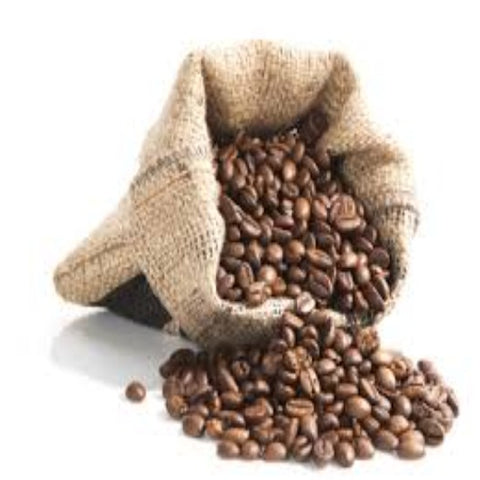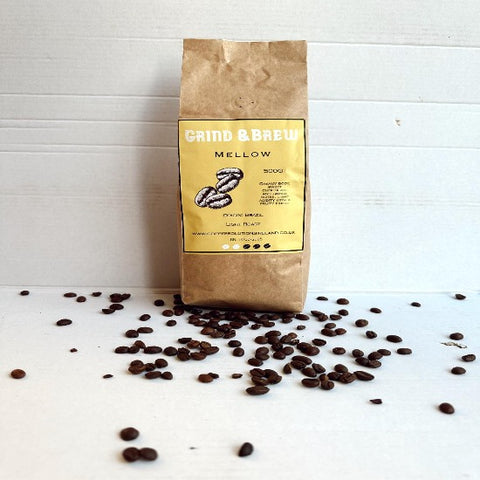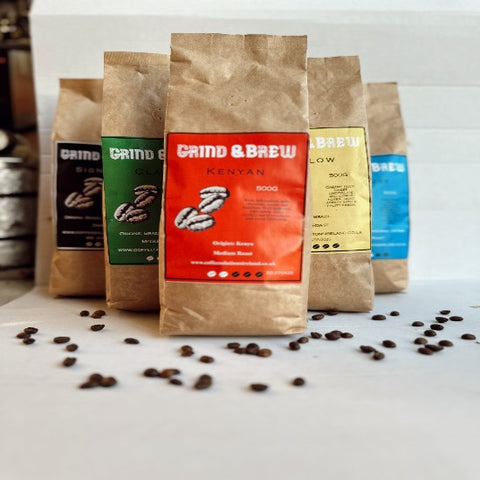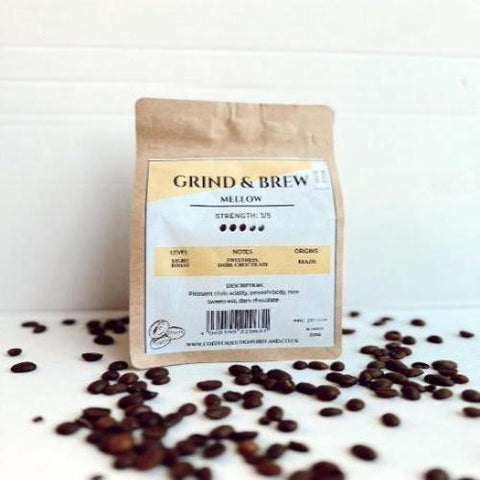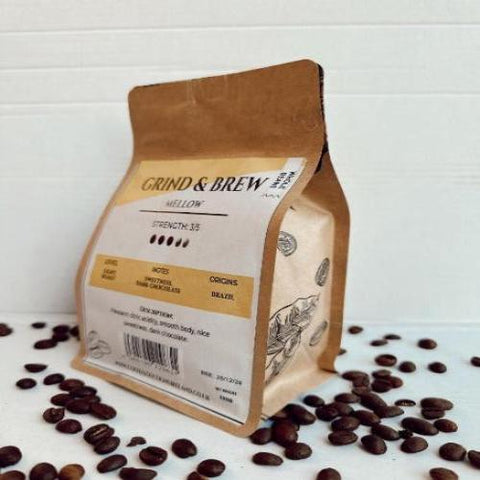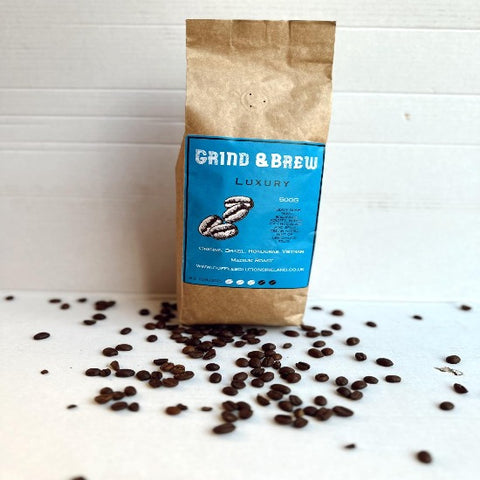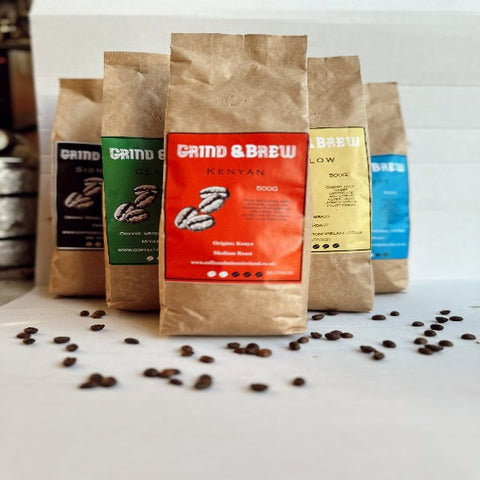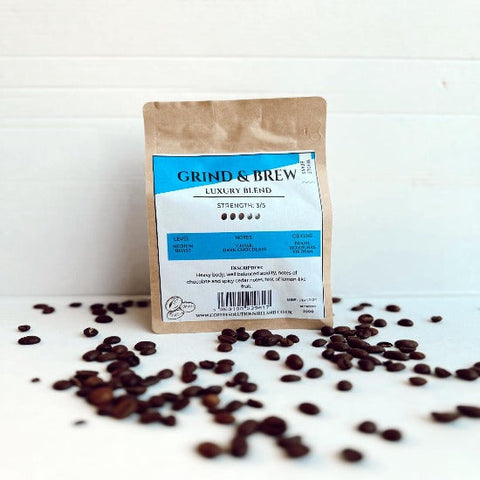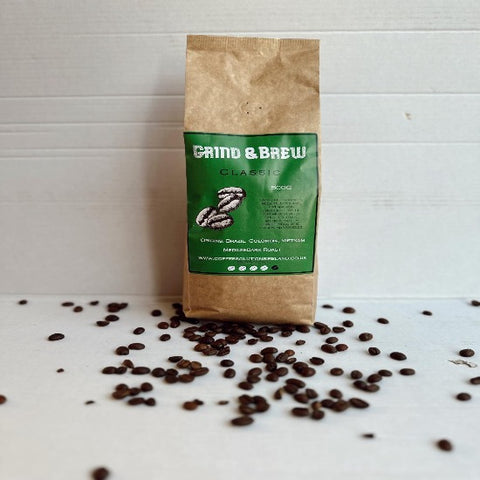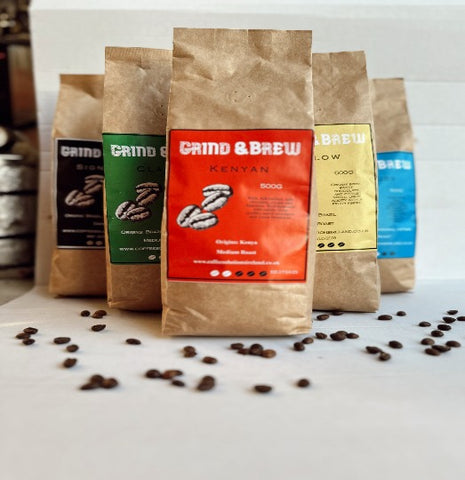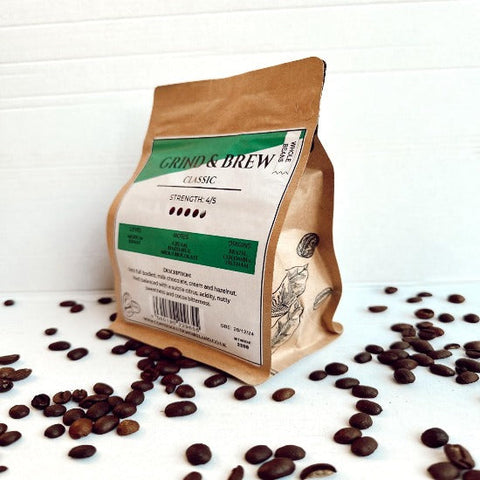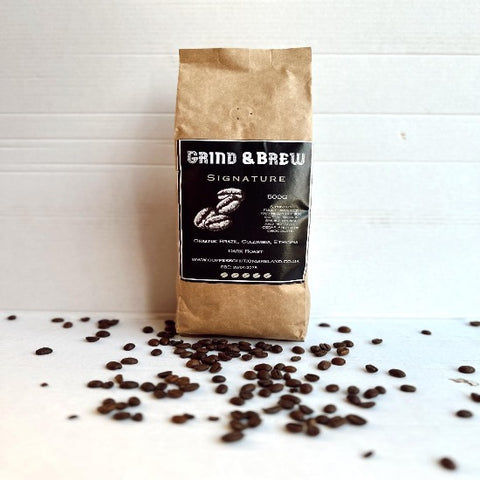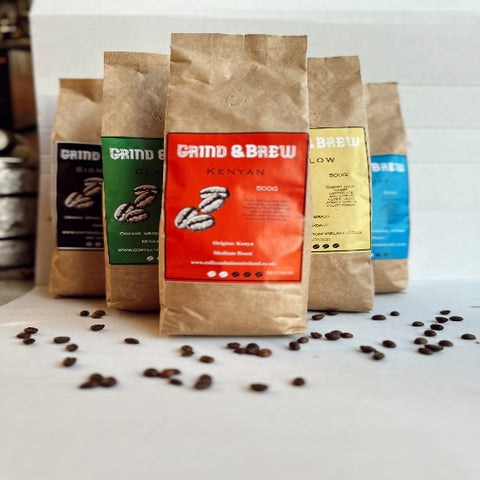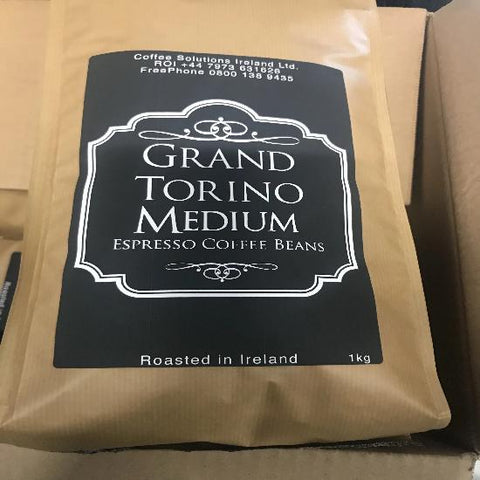Grind & Brew Classic Blend Whole Bean 220g
Available
Vendor: Coffee Solutions Ireland Ltd
Grind & Brew Classic Blend - Now in a handy 220g bag so you can wake up every morning to the aroma of fresh brew
About The Coffee
-
Brazilian Beans: Provide a foundation of rich chocolate, roasted nuts, and a creamy texture.
-
Ethiopian Beans: Introduce vibrant fruitiness, floral notes, and hints of berries or citrus.
-
Honduras Beans: Contribute caramel sweetness, mild nuttiness, and a balanced, structured profile.
Roast: Medium/dark
Origins: Brazil-Ethiopian-Honduras Beans
Beans Type: 100 % arabica
Strength: 4/5
Ideal for using with: Cafetieres, Stovetop, Aeropress Coffee Maker
ORIGINS BELOW
Brazil Natural 17/18 NY 2/3 SSFC
Brazil is a well-known coffee producing giant. They source around one-third of the world's coffee, making them the largest coffee producer in the globe! Of course, most of this is lower grade Arabica. However, this country is capable of producing specialty coffees. This particular type is a standard specialty quality coffee. It is dry-processed, meaning the beans are patio-dried while they are still in the cherry. Since the coffees are dried in contact with the sweet mucilage, the coffee's cup profile will be heavy in body, sweet, smooth, and complex.
Region: Mogiana, Sul de Minas, or Cerrado (Or a blend of regions
Growing Altitude: 800 – 1350 m.a.s.l. (Depending on blend)
Arabica Variety: Mundo Novo, Icatu, Acaiá, Catuaí, Tupi
Harvest Period: May – August
Milling Process: Natural Process
Ethiopia Djimmah G5
Ethiopia is famed for the unique flavours of its coffee, and it’s unusually distinct and elegant floral, herbal and citrus notes.
Despite being the claimed birthplace of coffee, Ethiopia is now the 5th largest producer of coffee in the world, and it holds 5% of the world’s market.
Coffees producers in this region are mainly smallholders, but they produce a large proportion of Ethiopia’s coffee (around 50%).
Coffee from this area is normally exported as “Limu” if washed, and “Djimmah” if naturally processed. They are typically milder than coffees from Sidamo.
Cup profile
Sweet floral aroma with medium lime'ish acidity and good medium body. Complex fruit (stoned fruit and berries) flavours with hints of coffee blossom and toast leaving a lingering after-taste
Region: Djimmah
Growing Altitude:
Arabica Variety: 1,800-2,200masl
Harvest Period: November - January
Milling Process: Natural Process
Aroma: Sweet, Floral
Flavor: Complex fruit, coffee blossom, toast
Body: Medium
Honduras SHG EP
The country of Honduras is a suitable location for coffee harvesting. The soil, climate, and conditions in Honduras are the same as neighboring countries. There is a range of coffee quality from Honduras; the country can produce a lower-cost Central American blender coffee, to high-grown specialty lots that rival more popular Central American coffees. This particular type is more complex than its HG counterpart; thus making it a specialty coffee.
In the past, Honduran coffee growers trafficked their beans into Guatemala; where they would sell for a higher price, because of Guatemala’s coffee reputation. After government tax on coffee exports started to play a role in the coffee business, the country boosted production and dramatically improved their coffee quality. Since then, demand has increased and selling coffee across the border has become unnecessary. Presently, coffee producers and Honduras government have made it a mission to improve the quality of coffee. Laws have been passed giving fiscal incentives to coffee producers and highways have been built to access remote coffee growing regions.
Region: La Paz, Marcala
Growing Altitude: 1350 + m.a.s.l
Arabica Variety: Catuaí, Caturra, Pacas, Bourbon
Harvest Period: December – April
Milling Process: Washed

